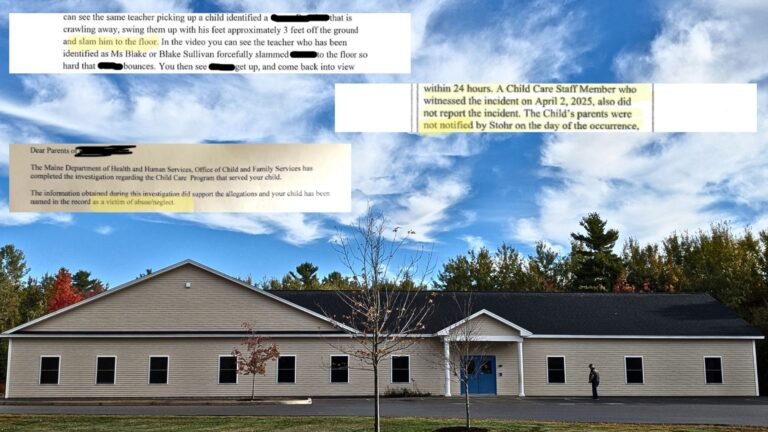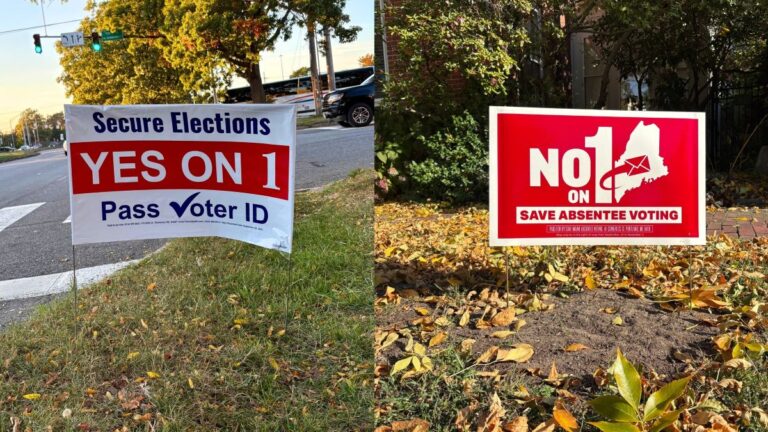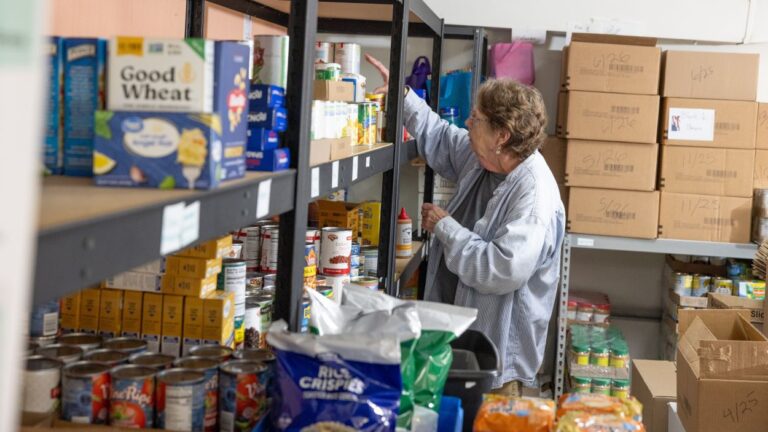The brick building on Main Street in Oakland that housed True’s Pharmacy was purchased by Robert and Wendy Nutting in 1997 for $174,000.
Eight years later, it was sold for $260,000 — an $86,000 increase.
The pharmacy, owned by Robert Nutting, Maine’s new Speaker of the House, went through bankruptcy proceedings between 2004 and 2006, after the state said the pharmacy owed the state and federal government $1.6 million in overpayments for adult diapers, gloves and other items.
But not one penny of that $86,000 went to pay back the money that the pharmacy owed taxpayers.
That’s because the owner of the pharmacy, Robert Nutting, had the building in the name of him and his wife, not in the name of the pharmacy — and under bankruptcy laws, the state had no claim on the building or the proceeds of its sale.
Nutting and his wife, Wendy, got to keep those proceeds. That wasn’t the only money the building made for the Nuttings: The pharmacy held a six-year lease on the building from June of 2002 that paid the Nuttings $4,000 per month.
Between 1997 and 2001, the state claimed True’s had overbilled and failed to provide records for $1.6 million in Medicaid reimbursements the pharmacy had submitted to the state. The state’s investigation determined that pharmacy owner Nutting had used a formula for calculating his markup for the items that was above the markup allowed by state rules “100 per cent of the time.”
Between the pre-bankruptcy sale of assets and the proceeds after approval for Chapter 7 bankruptcy, Nutting was able to pay the state back only $433,000, leaving $1.2 million unpaid.
The Maine Center for Public Interest Reporting has examined state and federal filings that provide details of the Nuttings’ financial affairs during and after the bankruptcy. Those filings demonstrate that Nutting and his wife were able to protect not only the pharmacy building, but also other real estate they owned, which they have also sold for more than they paid for it.
During the bankruptcy proceedings, the Nuttings owned a parcel of land on Town Farm Road in Oakland, some of which fronted on McGrath Pond. According to Maine real estate transfer tax records, the Nuttings bought the land in two parcels in 1980 for a total of $66,500.
In 2005, before the bankruptcy proceedings were finalized in federal court, they filed plans with the town for the “Nutting Trail Subdivision,” and by late 2006 had sold two of the subdivision’s parcels for a total of $195,000. The Nuttings own a home in the subdivision which is valued by the town assessor at $347,500.
Again, none of the proceeds of the Nuttings’ real estate sales in their subdivision went to pay back the debt to the state.
Laura Bartell, resident scholar at the American Bankruptcy Institute in Washing D.C., a nonpartisan and nonprofit research institute, said that corporations such the one that owned True’s are “created for the purpose of sheltering the assets of the individual.”
She said the state would not have a legal right to Nutting’s personal assets unless it could succeed in proving the corporation and its owner “were one in the same.”
That’s a legal principal known as “piercing the corporate veil,” she explained.
In fact, corporate filings with the Maine Secretary of State show that Robert Nutting was the only shareholder of the company, while Wendy Nutting was, at various times, its clerk.
Bartell asked if the state had tried to “pierce the corporate veil,” in order to get money from the sale of Nutting’s personal assets. But three attempts by the Center to speak to an attorney at the Maine Attorney General’s office were unsuccessful.
Nutting has said the overbillings were “honest” and “unintentional.” He has also said that the excess payments from Medicaid (called MaineCare in Maine) went into the business, including new equipment and pay raises for his 23 employees.
Yet, the bankruptcy records don’t show equipment valued anywhere near $1 million-plus.
The total value of the equipment in the building at the time of the bankruptcy was $128,815, including a 2001 Mustang the pharmacy sold for $$22,750 and other office equipment, some of which Nutting sold to himself or family members. They include, for example, a desk chair for which Nutting paid the pharmacy $75, an amount that eventually was included in the $433,000 the state collected.
The state also collected $78,500 for prescription and non-prescription inventory True’s was able to sell to other drug stores.
Nutting, a longtime lawmaker from Oakland, was selected as Speaker by fellow Republicans this week after they won a majority in the House for the first time since 1974. Lance Dutson, spokesman for Speaker Nutting, said Nutting was busy and unable to return phone calls on Friday. He agreed to consider questions submitted by the Center via email. No answers were received by press time.
John Christie, senior reporter at the Maine Center for Public Interest Reporting, contributed to this report.







